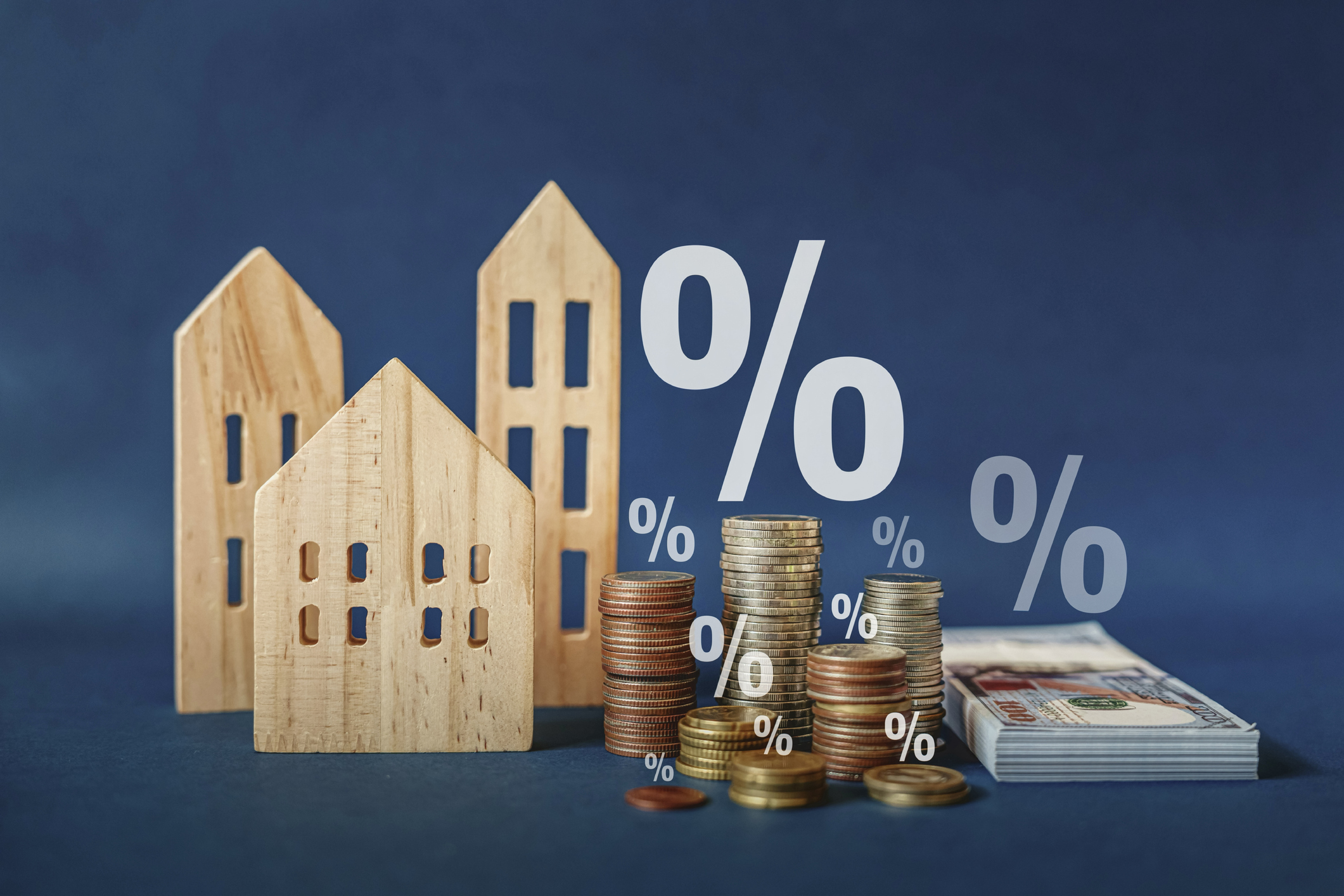Tips for Financing a Home Project
What's the best way to pay for a home improvement project? Here are the pros and cons of common financing options.

Kiplinger Advisor Collective

Profit and prosper with the best of Kiplinger's advice on investing, taxes, retirement, personal finance and much more. Delivered daily. Enter your email in the box and click Sign Me Up.
You are now subscribed
Your newsletter sign-up was successful
Want to add more newsletters?

Delivered daily
Kiplinger Today
Profit and prosper with the best of Kiplinger's advice on investing, taxes, retirement, personal finance and much more delivered daily. Smart money moves start here.

Sent five days a week
Kiplinger A Step Ahead
Get practical help to make better financial decisions in your everyday life, from spending to savings on top deals.

Delivered daily
Kiplinger Closing Bell
Get today's biggest financial and investing headlines delivered to your inbox every day the U.S. stock market is open.

Sent twice a week
Kiplinger Adviser Intel
Financial pros across the country share best practices and fresh tactics to preserve and grow your wealth.

Delivered weekly
Kiplinger Tax Tips
Trim your federal and state tax bills with practical tax-planning and tax-cutting strategies.

Sent twice a week
Kiplinger Retirement Tips
Your twice-a-week guide to planning and enjoying a financially secure and richly rewarding retirement

Sent bimonthly.
Kiplinger Adviser Angle
Insights for advisers, wealth managers and other financial professionals.

Sent twice a week
Kiplinger Investing Weekly
Your twice-a-week roundup of promising stocks, funds, companies and industries you should consider, ones you should avoid, and why.

Sent weekly for six weeks
Kiplinger Invest for Retirement
Your step-by-step six-part series on how to invest for retirement, from devising a successful strategy to exactly which investments to choose.
I recently had a call with a client who was looking to fund the construction of a swimming pool at his house. The client had enough cash to pay for the project but wanted to weigh all the financing options. This is the type of advice we as financial planners are often asked to give.
Funding a large purchase should be thoughtfully planned. I always recommend that clients take a moment to consider how a potential purchase impacts their overall financial plan and long-term goals, and I work with them to quantify those impacts.
If you decide that a purchase aligns with your goals, then you can think about how to fund it. Here’s a rundown of some common options.
From just $107.88 $24.99 for Kiplinger Personal Finance
Become a smarter, better informed investor. Subscribe from just $107.88 $24.99, plus get up to 4 Special Issues

Sign up for Kiplinger’s Free Newsletters
Profit and prosper with the best of expert advice on investing, taxes, retirement, personal finance and more - straight to your e-mail.
Profit and prosper with the best of expert advice - straight to your e-mail.
Cash reserves
Cash reserves are usually the best option for funding a project. However, you must determine whether raiding your cash stash would put its balance below the recommended threshold for covering any emergency needs — say, to manage expenses if you lose your job or to pay medical bills resulting from an unexpected illness. As a rule of thumb, I suggest maintaining six months’ worth of living expenses in an easily accessible account.
Investments
Using money from your investment portfolio can also be a solid choice, although you’ll want to evaluate the pros and cons of taking out funds for the project now compared with leaving them in your account, allowing them to grow and be used for other goals.
If you decide to withdraw from your investment account, be aware of the tax implications. You’ll typically owe capital gains tax on investment earnings; long-term gains from selling investments that you’ve held for more than a year are taxed at rates of 0%, 15% or 20%, depending on your taxable income. Assets you’ve held for a year or less are taxed at the same rate as your ordinary income, with rates ranging from 10% to 37%.
A home equity line of credit
A HELOC, which is a line of credit that allows you to borrow against the equity in your home, can be a good source for financing a project — especially if you can get a reasonable interest rate. Recently, the average rate on a $30,000 HELOC was 9.07%, according to Bankrate. HELOC rates are usually variable, rising and falling based on market conditions.
HELOCs typically involve a draw period of up to 10 years, during which you can borrow money and may be required to pay only interest each month, followed by a repayment period of up to 20 years. During the repayment period, you’ll need to pay back the full amount borrowed plus interest.
If you use HELOC funds for a home improvement project, the interest on up to $750,000 of debt (or $375,000 if you’re married filing separately) may be tax-deductible.
A no-interest credit card offer
Some credit cards offer an introductory 0% interest rate on purchases for a limited time — typically anywhere from six to 21 months. Applying for one of these cards may be a good way to get short-term financing for a project, but it’s important to pay off the balance before the 0% period expires.
Otherwise, you’ll pay the card’s standard rate, which is usually much higher, on the remainder of the balance. Or worse, you may pay retroactive interest on the full purchase amount if you don’t pay off the entire balance before the promotional period ends. Retailers, such as home-improvement stores, commonly use these deferred-interest payment plans on their credit cards.
Note: This item first appeared in Kiplinger Personal Finance Magazine, a monthly, trustworthy source of advice and guidance. Subscribe to help you make more money and keep more of the money you make here.
Related content
Profit and prosper with the best of Kiplinger's advice on investing, taxes, retirement, personal finance and much more. Delivered daily. Enter your email in the box and click Sign Me Up.

Mario R. Hernandez, Principal at Longevity Wealth Management, has been a Certified Financial Planner (CFP®) since 1994 and brings a vast amount of experience in the financial planning and investment management business. Mario previously headed up the wealth management division at Gemmer Asset Management LLC and provided clients with holistic planning and helped prepare them for retirement.
-
 Dow Adds 1,206 Points to Top 50,000: Stock Market Today
Dow Adds 1,206 Points to Top 50,000: Stock Market TodayThe S&P 500 and Nasdaq also had strong finishes to a volatile week, with beaten-down tech stocks outperforming.
-
 Ask the Tax Editor: Federal Income Tax Deductions
Ask the Tax Editor: Federal Income Tax DeductionsAsk the Editor In this week's Ask the Editor Q&A, Joy Taylor answers questions on federal income tax deductions
-
 States With No-Fault Car Insurance Laws (and How No-Fault Car Insurance Works)
States With No-Fault Car Insurance Laws (and How No-Fault Car Insurance Works)A breakdown of the confusing rules around no-fault car insurance in every state where it exists.
-
 We're 62 With $1.4 Million. I Want to Sell Our Beach House to Retire Now, But My Wife Wants to Keep It and Work Until 70.
We're 62 With $1.4 Million. I Want to Sell Our Beach House to Retire Now, But My Wife Wants to Keep It and Work Until 70.I want to sell the $610K vacation home and retire now, but my wife envisions a beach retirement in 8 years. We asked financial advisers to weigh in.
-
 We Inherited $250K: I Want a Second Home, but My Wife Wants to Save for Our Kids' College.
We Inherited $250K: I Want a Second Home, but My Wife Wants to Save for Our Kids' College.He wants a vacation home, but she wants a 529 plan for the kids. Who's right? The experts weigh in.
-
 2026's Tax Trifecta: The Rural OZ Bonus and Your Month-by-Month Execution Calendar
2026's Tax Trifecta: The Rural OZ Bonus and Your Month-by-Month Execution CalendarReal estate investors can triple their tax step-up with rural opportunity zones this year. This month-by-month action plan will ensure you meet the deadlines.
-
 Have You Aligned Your Tax Strategy With These 5 OBBBA Changes?
Have You Aligned Your Tax Strategy With These 5 OBBBA Changes?Individuals and businesses should work closely with their financial advisers to refine tax strategies this season in light of these five OBBBA changes.
-
 Is the Housing Market's 'Lock-In Effect' Finally Starting to Ease?
Is the Housing Market's 'Lock-In Effect' Finally Starting to Ease?As mortgage rates stabilize and fewer owners hold ultra-low loans, the lock-in effect may be losing its grip.
-
 How to Find the Best International Moving Company for Your Big Move Abroad (and Avoid Costly Mistakes)
How to Find the Best International Moving Company for Your Big Move Abroad (and Avoid Costly Mistakes)It's best to use an international moving company to protect your belongings and budget when relocating to another country. Here's how to find a reputable firm.
-
 What to Ask a Contractor Before a Renovation
What to Ask a Contractor Before a RenovationHomeowners should ask these essential questions before hiring a contractor to avoid surprises, protect their investment and keep projects on time and on budget.
-
 I'm 61 and Want a Divorce, but I Worry About My Finances. Should We Live Separately but Stay Married?
I'm 61 and Want a Divorce, but I Worry About My Finances. Should We Live Separately but Stay Married?We asked Certified Divorce Financial Analysts for advice.